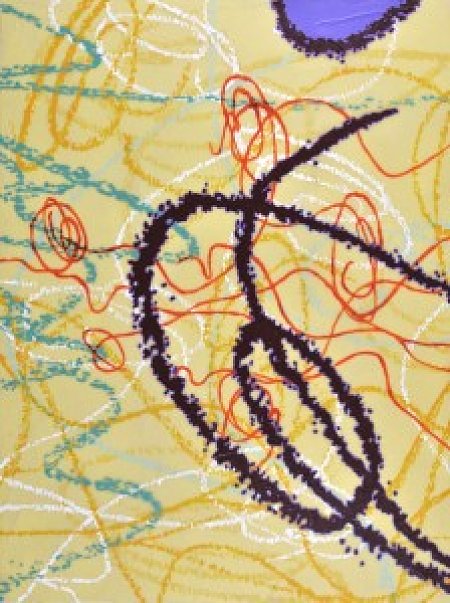
Numbers
But when I’m a published author, my legs won’t matter, because on books, they publish faces: of foxy women in hats and of men with cigars or with guns or pens, something elongated and firm which reminds us of masculinity. My limp will look good in my biography, though, making me special. I’m here to write down everything. To observe and report. I’m here to imbibe all the dreadful details of everyday life and turn them into beautiful fiction.
Yes, I would like to write fiction; the only thing I don’t want is to become a fact or a casualty. I will survive this difficult period exactly because I have this talent for writing, and it cannot be that it’s given to me by God just to waste. It’s here for a purpose and as long as I continue writing, I’ll continue living.
III.
After you have seen in the mirror of your imagination my curious, elongated, dark face with long braids, after you have felt sorry for my shorter left leg and lusted after my youth and have scorned me for my boastfulness and naiveté, I’ll get back to Olga Ferrara.
Three months ago I met her on the street: she was dressed in a bright maroon dress and an elegant hat, nothing similar to that dark, ugly, drab outfit in which she was found lying on the playground–isn’t it strange to think that, despite this bleak outfit, she was discovered and her body disposed of so quickly, as though the neighbors had been waiting to help her say good-bye to this world.
There are rumors that she left a note, found on her body and later disposed of with it, as though both her words and flesh were dangerous, that in this note she said that she was ending her life because she could not bear the shame and burden of racial laws that looked upon her as a second class person. She said that she had been living in terror for several years, hoping that eventually somebody with a clear mind would once and for all tell the others that what they are doing and thinking about Jews was sheer madness, but that nobody even tried to shake off this nightmare, and now life had just turned into crude darkness.
She could not believe that humanity had come to this, and she mentioned that she was scared, simply scared of continuing to live in such a world, being a person who didn’t deserve scorn and shame, being the niece of famous publishers who were bringing humanity and enlightenment by publishing the luminaries of their time. These luminaries, according to her words, cared about simple folk, describing simple folk with sympathy and understanding, the same way her husband Ferrara painted seamstresses and bakers, red-cheeked wet nurses and thick-thighed laundry women drying their hands, instead of glorifying only his class.
Before the racial laws, Olga was first class, refined, and educated, and now she was second and perhaps even third, despised and unwanted. But now, in the afterlife, which class had she become?
Maybe she indeed wrote all those things in her final note, or maybe she didn’t, or, perhaps, she said it in other words totally unlike mine–I will never know, because one of the neighbors whispered to me that the note had been buried together with Olga, and now nobody will ever know her last words. There was no obituary in the newspaper, because the racial laws prohibited the publishing of “Jewish” obituaries, and this was like spitting in her face: all her life she loved words and reading, and after her death she was denied even a handful of words about herself.
When I met her three months ago, she was still smiling and, upon hearing that I was trying to write every day and that I admired her uncles who socialized with the luminaries of their time, publishing Luigi Pirandello and Giovanni Verga and Edmondo de Amicis, among many others–upon hearing this, she led me to her apartment and produced a large album that those Italian intellectuals–including my favorite, Marinetti–signed for her uncles. She led me to her apartment and served me a cup of tea with lingue di gatto, and then she opened a cupboard and gave me this heavy album that was published in celebration of the fiftieth anniversary of the Fratelli Scarfati Publishing House. And I read, one by one, commentaries left by writers who expressed their thankfulness to the Scarfati: for supporting their talents, for paying for their words, for publishing their work, for making their word and world known and heard.
I think I should write a short story about Olga; I just need to find a detail that will be so memorable that her face will stand out before the reader. But I don’t know what to describe besides her black outfit hardly visible on the playground, masked by green and lush foliage… What details should I emphasize?
How she saw a caricature in a newspaper which depicted a red-nosed Jew selling used razors–a huge caricatured figure putting that razor almost to the throat of a poor Italian worker–and suddenly, after living for several years under this burden, realized that she could stand it no more? I’m really at a loss for words. All I can repeat is her name, Olga. Why did her parents give her such a Russian name? Was there any meaning behind it?
